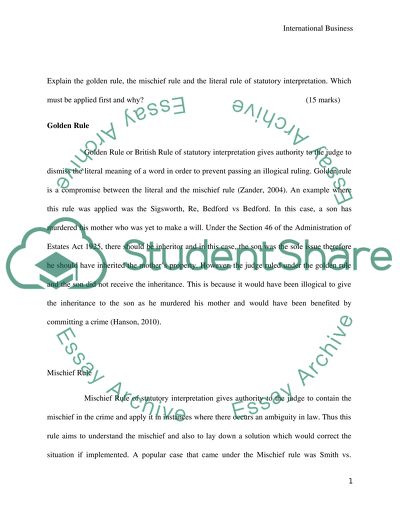Cite this document
(“Golden Rule, The Mischief Rule and The Literal Rule of Statutory Essay”, n.d.)
Golden Rule, The Mischief Rule and The Literal Rule of Statutory Essay. Retrieved from https://studentshare.org/law/1402772-introduction-to-business-law
Golden Rule, The Mischief Rule and The Literal Rule of Statutory Essay. Retrieved from https://studentshare.org/law/1402772-introduction-to-business-law
(Golden Rule, The Mischief Rule and The Literal Rule of Statutory Essay)
Golden Rule, The Mischief Rule and The Literal Rule of Statutory Essay. https://studentshare.org/law/1402772-introduction-to-business-law.
Golden Rule, The Mischief Rule and The Literal Rule of Statutory Essay. https://studentshare.org/law/1402772-introduction-to-business-law.
“Golden Rule, The Mischief Rule and The Literal Rule of Statutory Essay”, n.d. https://studentshare.org/law/1402772-introduction-to-business-law.


